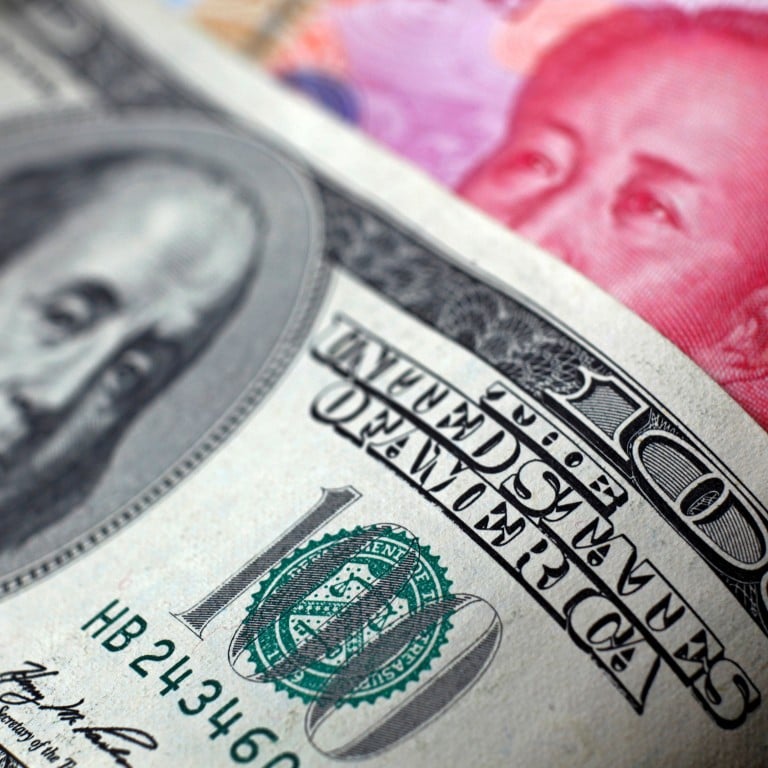
Explainer | What is China’s Swift equivalent and could it help Beijing reduce reliance on the US dollar?
- The move to ban certain Russian banks from Swift is likely to accelerate expansion of Beijing’s cross-border payment and settlement system, analysts say
- The Cross-Border Interbank Payment System, or CIPS, was launched in October 2015 to boost international use of China’s currency in trade settlements
The United States, European Union, Canada and Britain have decided to exclude selected Russian banks from the Swift financial messaging system, the so-called nuclear option for sanctions.
Seven Russian banks, namley VTB Bank, Bank Otkritie, Novikombank, Promsvyazbank, Rossiya Bank, Sovcombank and the country’s development bank VEB, were removed from the system in March.
In May, the European Commission also proposed to remove Russia’s largest bank Sberbank, Credit Bank of Moscow and the Russian Agricultural Bank from the system.
The 10 banks account for more than 60 per cent of Russia’s banking market, the Financial Times reported.
Gazprombank, the country’s third-largest lender affiliated to energy giant Gazprom, has yet to be affected.
The move to ban Russian financial institutions is likely to accelerate expansion of Beijing’s own cross-border payment and settlement system, which has gained more prominence amid US threats to decouple its economy from China’s in 2019. Below are key facts about the Chinese system.
What is CIPS?
The Cross-Border Interbank Payment System, or CIPS, was launched in October 2015 to provide an independent international yuan payment and clearing system connecting both onshore and offshore clearing markets and participating banks.
Based in the financial hub of Shanghai, it employs more than 100 people and has registered capital worth 2.38 billion yuan (US$376.9 million). The important financial infrastructure is overseen by the People’s Bank of China.
What is Swift and what would happen if Russia is banned?
The China National Clearing Centre, an affiliate of the central bank, is the largest shareholder, with a stake of 15.7 per cent. The National Association of Financial Market Institutional Investors, the Shanghai Gold Exchange, China Banknote Printing and Minting Corporation and China Union Pay each own a 7.85 per cent share, according to business registration information published by Tianyancha.com.
Foreign banks also have shares in CIPS, including a 3.92 per cent stake owned by HSBC Holdings, 2.36 per cent by Standard Chartered, and 1.18 per cent by the Bank of East Asia.
What is the origin of CIPS?
Use of the yuan increased after its inclusion in the International Monetary Fund’s Special Drawing Rights basket in 2015. However, its share is not in proportion with its status as the world’s second largest economy, accounting for 18 per cent of global gross domestic product.
Swift data showed that the Chinese yuan accounted for 3.2 per cent of global payments in January, far below the US dollar, which accounted for 39.92 per cent of settlements, the euro on 36.56 per cent and the British pound at 6.3 per cent.
CIPS reported 2.68 million transactions in the first 11 months of last year, an increase of 58 per cent from a year earlier. The transaction value jumped 83 per cent to 64 trillion yuan, the Shanghai Securities News reported, citing data from the system operator.
Do overseas banks use CIPS?
After CIPS launched in 2015, 19 banks signed on to phase one of the project, including 11 Chinese banks and eight locally registered entities of overseas banks – Standard Chartered, Deutsche Bank, HSBC, Citi Bank, DBS Bank, Bank of East Asia, BNP Paribas and ANZ.
In January this year, the system had 1,280 users across 103 countries, including 75 directly participating banks and 1,205 indirect participants. The operator said last year overseas indirect participants account for 54.5 per cent of the total.
The involvement of large international banks sets it apart from Russia’s System for Transfer of Financial Messages (SPFS), which has around 400 users but only a dozen foreign banks from countries such as China, Cuba, Belarus, Tajikistan and Kazakhstan.
Standard Chartered led overseas banks in terms of CIPS transactions last year, according to a statement from the bank in mid-February.
How does CIPS compare to Swift?
CIPS is viewed as a possible alternative to the US-controlled global settlement system, which includes Belgium-based Swift and the New York-based Clearing House Interbank Payments System.
However, it is much smaller than Swift, which is used by 11,000 financial institutions across 200 countries or regions, including nearly 600 Chinese banks.
What is the future of CIPS?
Chinese analysts believe sanctions on Russian banks will be a wake-up call for Beijing.
“As seen from Russia’s Swift exclusion and the China-US trade friction in recent years, it is necessary to reduce reliance on Swift to ensure financial security,” Dongguan Securities analysts Chen Weiguang, Luo Weibin and Liu Menglin wrote on Monday.
Tianfeng Securities analyst Miao Xinjun said on Monday the connection between international financial institutions and CIPS could receive a boost.
Zelensky vs Putin: who’s winning the PR battle?
Swift sanctions on Iran and Russia – both important oil producing nations – could accelerate the decline of the petrodollar system and facilitate yuan internationalisation, Miao said in a note.
CIPS president Xu Zaiyue said in an interview with Shanghai Securities News last December the organisation aims to increase the number of directly participating banks.
“We hope to provide services all around the globe one day, and especially to facilitate services to overseas participants,” he said. “There will be CIPS services wherever there is yuan.”



